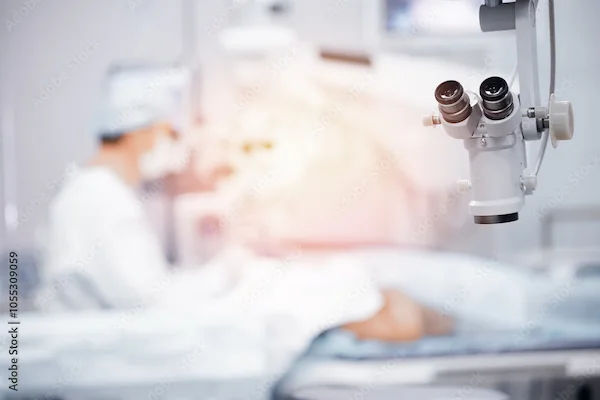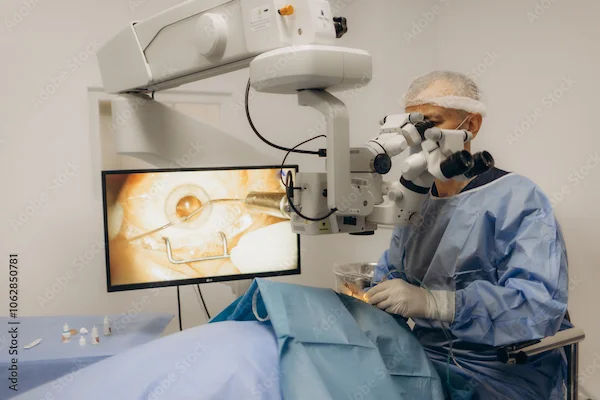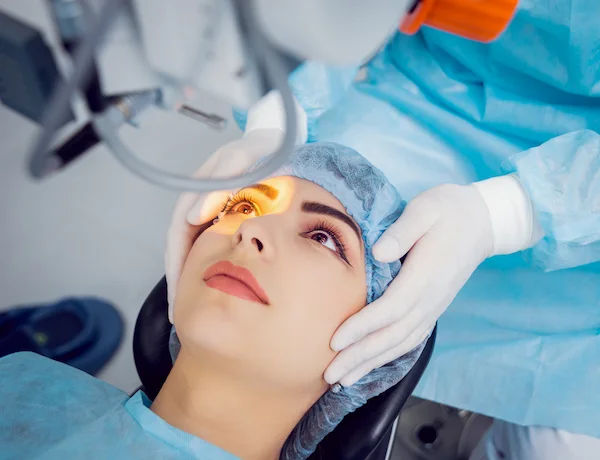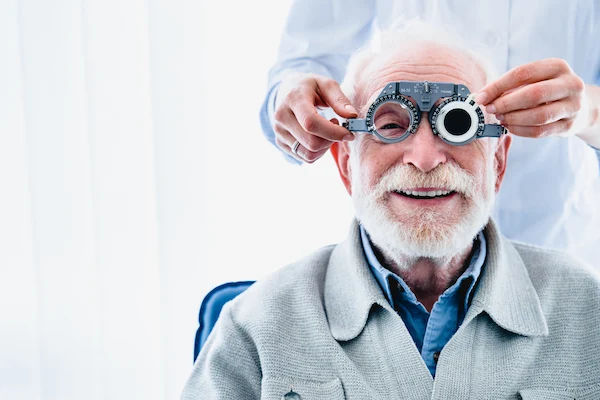Laser Vs Scalpel Cataract Surgery
Explore the key differences between traditional scalpel cataract surgery and advanced laser cataract surgery. Understand the precision, recovery, and cost implications of each method to make an informed choice for your vision.

Written by Dr.Sonia Bhatt
Last updated on 16th Jul, 2025
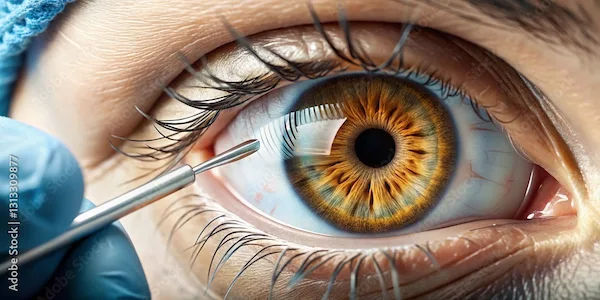
Introduction
Cataracts are a common eye condition, especially as we age. They cause the eye's natural lens to become cloudy, leading to blurry vision, difficulty seeing at night, and faded colors. If left untreated, cataracts can significantly impact daily life. The good news is that cataract surgery is a safe and effective way to restore clear vision.
Today, there are two main types of cataract surgery: traditional (scalpelbased) surgery and laser-assisted surgery. Both procedures aim to remove the cloudy lens and replace it with an artificial one, but they differ in technique, precision, and recovery.
In this article, we’ll explore the differences between laser and scalpel cataract surgery, helping you make an informed decision about your eye health.
Understanding Cataract Surgery
Before diving into the differences, let’s briefly understand how cataract surgery works:
Removal of the Cloudy Lens – The surgeon removes the eye’s natural lens that has become cloudy due to cataracts.
Insertion of an Artificial Lens (IOL) – A clear, artificial intraocular lens (IOL) is placed to restore vision.
Both laser and scalpel surgeries follow these steps, but the tools and techniques vary.
Traditional (Scalpel) Cataract Surgery
This is the most common and timetested method. Here’s how it works:
Procedure:
The surgeon makes a tiny incision in the cornea using a handheld blade.
An ultrasound device breaks the cloudy lens into small pieces, which are then suctioned out.
The artificial lens is inserted through the same incision.
Pros:
Proven and Reliable – Used for decades with high success rates.
Cost Effective – Generally less expensive than laser-assisted surgery.
Widely Available – Offered by most eye surgeons.
Cons:
Manual Precision – Depends on the surgeon’s skill for incision accuracy.
Slightly Longer Recovery – May take a few extra days for full healing compared to laser surgery.
Laser-Assisted Cataract Surgery
Laser cataract surgery is a more advanced approach that uses computerguided lasers for precision.
Procedure:
A laser creates precise incisions in the cornea and softens the cataract for easier removal.
The laser also helps correct astigmatism (if present) by reshaping the cornea.
The surgeon then removes the lens and inserts the IOL.
Pros:
Higher Precision – The laser ensures more accurate incisions and lens placement.
Faster Recovery – Many patients experience quicker healing.
Customizable – Can correct astigmatism during the procedure.
Cons:
Higher Cost – More expensive than traditional surgery.
Limited Availability – Not all clinics offer laser cataract surgery.
Which One Should You Choose?
Both methods are safe and effective, but your choice depends on factors like:
Budget – If cost is a concern, traditional surgery may be preferable.
Eye Condition – If you have astigmatism, laser surgery may offer better correction.
Surgeon’s Recommendation – Your doctor can advise based on your eye health.
Consult Top Specialists for Personalised Tips
When to Consider Laser Surgery:
If you want the most precise and advanced option.
If you have astigmatism and want it corrected during the procedure.
If faster recovery is important to you.
When Traditional Surgery is a Good Choice:
If you prefer a proven, costeffective method.
If laser surgery is not available in your area.
Recovery and Aftercare Tips
No matter which surgery you choose, proper aftercare is crucial for healing:
Use Prescribed Eye Drops – Prevents infection and reduces inflammation.
Avoid Strenuous Activities – For at least a week to prevent strain.
Wear Sunglasses – Protects your eyes from bright light and dust.
Attend Follow-Up Appointments – Ensures proper healing.
Most patients notice improved vision within a few days, with full recovery in about a month.
Final Thoughts
Both laser and traditional cataract surgeries are excellent options to restore clear vision. While laser surgery offers more precision and faster recovery, traditional surgery remains a reliable and cost-effective choice. Consult an eye specialist who can evaluate your condition and recommend the best approach for you. If you or a loved one is considering cataract surgery, Apollo 24|7 offers expert consultations with top ophthalmologists. You can book an appointment online and get personalized guidance for your eye health. Visit Apollo 24|7 to book an appointment with an eye specialist near you.
Consult Top Eye Surgeon
Consult Top Specialists for Personalised Tips
Dr. S Venkateswaran
Ophthalmologist
35 Years • MBBS, PGD (OPTHALMOLOGY)
Tiruvannamalai
Shiva Eye And General Hospital, Tiruvannamalai

Dr. Syed Saifullah Bokhari
Ophthalmologist
4 Years • MBBS, MS(Ophthalmology)
Bengaluru
Vasan Eye Care, Bengaluru
Dr. Kakarla Roopa
Ophthalmologist
3 Years • MBBS MS Ophthalmology
Tirupati
Anna Gowri Hospital, Tirupati

Dr. Balakrishna Balaka
Ophthalmologist
6 Years • MBBS, MS Ophthalmology
Visakhapatnam
Balakrishna eye clinic, Visakhapatnam
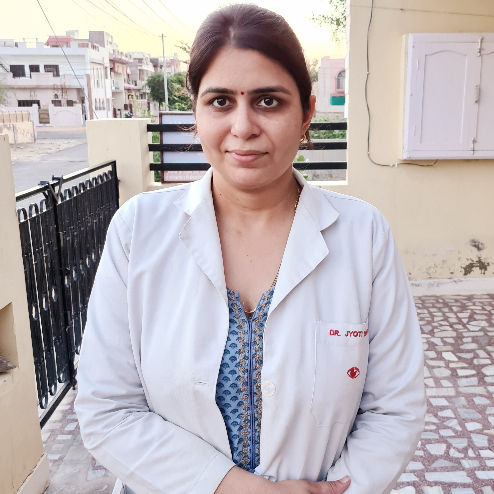
Dr. Jyoti Dhaka
Ophthalmologist
9 Years • MBBS, Dip in (OPHTHALMOLOGY),DNB (OPHTHALMOLOGY)
Jhujhunu
Dr.Jyoti Dhaka Eye Clinic, Jhujhunu
(25+ Patients)
Consult Top Eye Surgeon
Dr. S Venkateswaran
Ophthalmologist
35 Years • MBBS, PGD (OPTHALMOLOGY)
Tiruvannamalai
Shiva Eye And General Hospital, Tiruvannamalai

Dr. Syed Saifullah Bokhari
Ophthalmologist
4 Years • MBBS, MS(Ophthalmology)
Bengaluru
Vasan Eye Care, Bengaluru
Dr. Kakarla Roopa
Ophthalmologist
3 Years • MBBS MS Ophthalmology
Tirupati
Anna Gowri Hospital, Tirupati

Dr. Balakrishna Balaka
Ophthalmologist
6 Years • MBBS, MS Ophthalmology
Visakhapatnam
Balakrishna eye clinic, Visakhapatnam

Dr. Jyoti Dhaka
Ophthalmologist
9 Years • MBBS, Dip in (OPHTHALMOLOGY),DNB (OPHTHALMOLOGY)
Jhujhunu
Dr.Jyoti Dhaka Eye Clinic, Jhujhunu
(25+ Patients)

